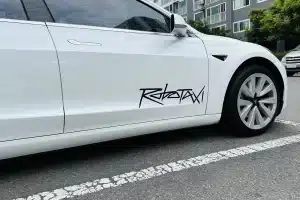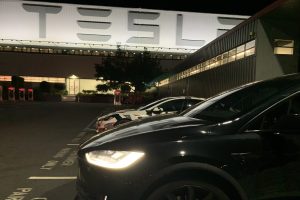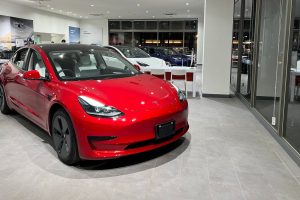For years, Tesla has invested heavily in its supply chain and battery strategy. So focused was the company in these endeavors that it even decided to design and produce its own batteries, the 4680 cells. The next-generation cells are a crucial component of Tesla’s long-term plan to make electric vehicles more affordable.
Elon Musk has been very open about Tesla’s need for nickel. Being a key component of its high-performance batteries, Musk stated back in 2020 that any company that can provide Tesla with environmentally-friendly nickel would be granted with a massive contract. During Battery Day, the CEO also highlighted that Tesla’s nickel-based 4680 batteries would be the heart of the company’s flagship products, like the Cybertruck.
But while nickel is a critical ingredient of lithium-ion batteries, experts have predicted an upcoming shortage for some time. Norway-based energy analytics firm Rystad Energy estimated that demand would surpass nickel supply around 2024, and by 2026, there might be a shortage of the material. This timeframe seems to have been accelerated by Russia’s invasion of Ukraine.
It should be noted that Russia controls 20% of the supply of the industry’s highest-grade nickel. The country also holds 10% of the world’s overall nickel supply. Thus, when Russia was hit by sanctions due to its invasion of Ukraine, the markets reacted. Nickel prices rose so much that the London Metal Exchange canceled trading for the material for more than a week. In a statement to Insider, auto industry analyst Lauren Fix noted that Russia’s control of nickel could have adverse effects for electric vehicle makers.
“Relying on your enemies to supply you with critical materials is never to your benefit. They have the ability to control the price you pay and can make it more difficult for you to gain supply to meet your goals,” Fix said.
Tesla is the market’s dominant electric vehicle maker, and for good reason. For years, the company has initiated plans to be as immune as possible from market shifts. Tesla built up a nickel supply practically independent of many market shifts by tapping into partnerships with nickel-mining companies and nickel production entities. The company even bought into a nickel mine in early 2021, providing itself with direct access to the material.
Tesla has also worked heavily in its battery technology, from the 2170 cells currently being made in Gigafactory Nevada with Panasonic to the 4680 cells that are currently being ramped in the company’s Kato Road facility. Tesla’s 4680 batteries were announced as nickel-based cells, though they feature a number of efficiencies that make their production more cost-effective and their life cycle longer compared to traditional batteries.
Interestingly enough, Tesla is not keeping its 4680 battery technology all for itself. In a previous announcement, Panasonic has confirmed that it would also be producing 4680 batteries, and they have already been validated by the electric vehicle maker. Panasonic has noted that mass production of the next-generation cells would begin around 2024.
Tesla also managed to handle the rising cost of nickel by using batteries that do not use the material at all. As per CEO Elon Musk, Tesla has started focusing on using iron-based batteries for its entry-level vehicles like the Model 3 RWD and the Model Y RWD, both of which are produced in Gigafactory Shanghai. The company has also mentioned that it had begun using manganese for some of its batteries to help reduce its reliance on nickel. Lastly, Tesla also launched a recycling program for its nickel-based batteries, which should help the company’s supply chain further in the future.
Tesla is still affected by shifts in the market. The fact that the company has raised its vehicle prices twice in recent weeks is proof of that. However, a number of experts have stated that Tesla’s forward-looking strategy still makes the company well-positioned to continue in its role as the undisputed leader in the electric vehicle industry. Tien Wong, a tech investor and the founder of Connectpreneur, shared his thoughts on the matter.
“Prewar, nickel prices, and potential shortages were a huge concern of Elon’s and the EV industry as a whole. The war will exacerbate these dynamics, which will result in higher prices and slower deliveries for EVs. As for Tesla, they are the market leader right now, so the nickel situation may actually help them versus competitors in the short run,” Wong said.
*Quotes courtesy of Insider.





